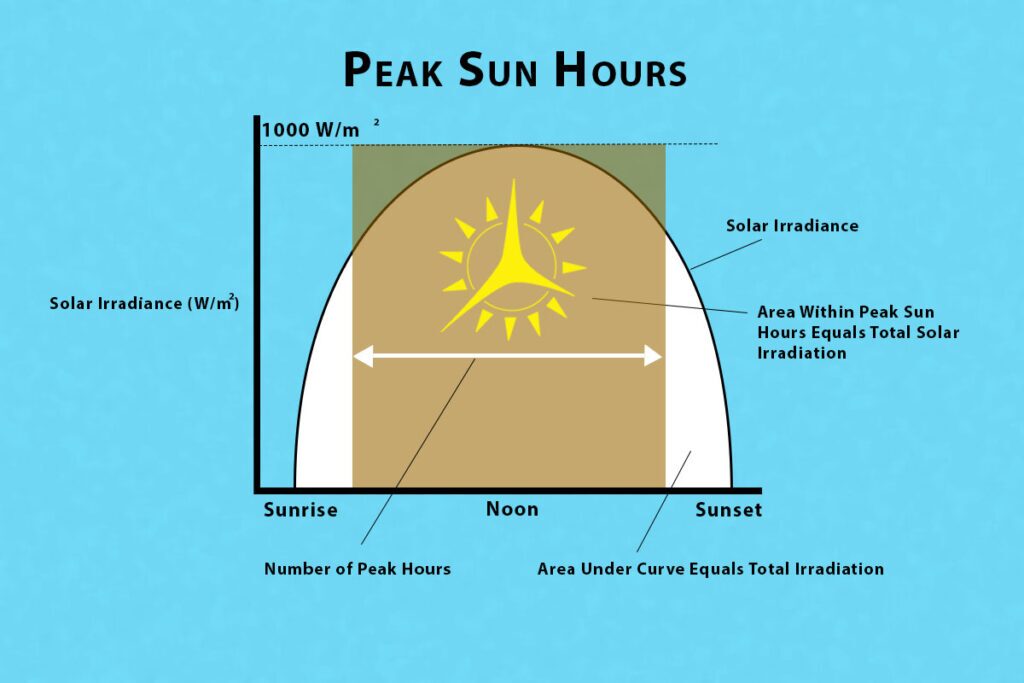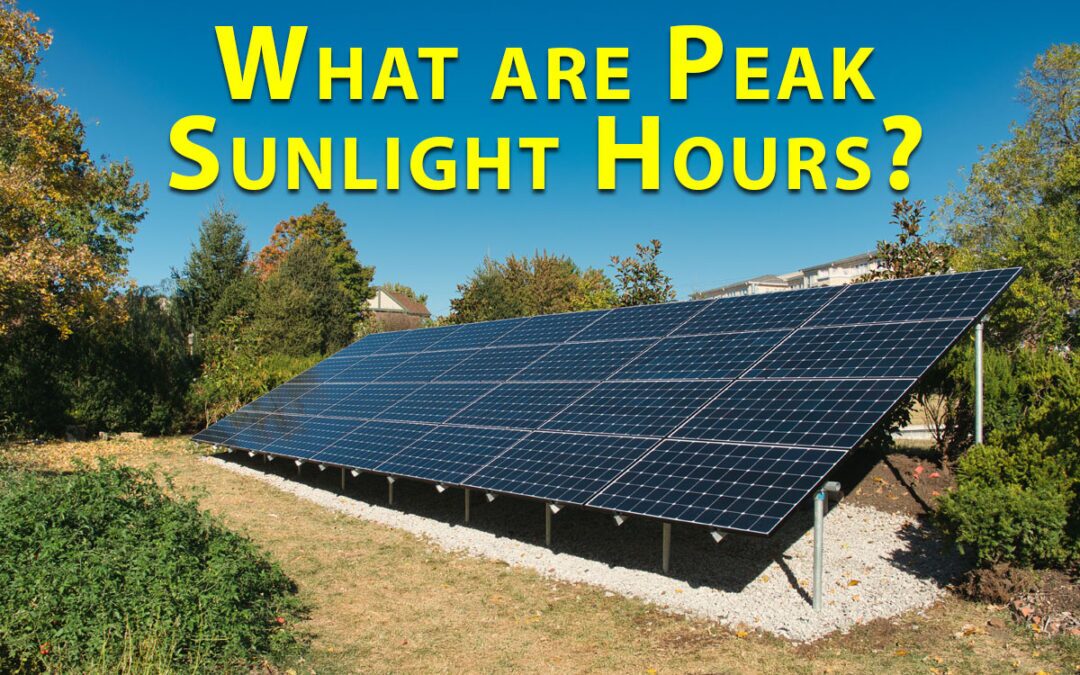The amount of energy a solar panel can generate is directly proportional to the intensity of sunlight it receives. Solar panels produce the most electricity when they are exposed to the highest levels of solar irradiance. Peak sun hours take into account the varying intensity of sunlight throughout the day, accounting for factors such as cloud cover, the angle of the sun, and atmospheric conditions.
Mathematically, a peak sun hour is defined as one hour in which the intensity of solar irradiance (sunlight) reaches an average of 1,000 watts (W) of energy per square meter (roughly 10.5 feet). Another way to say it is a peak sun hour is the equivalent of 1000 W/m² of sunlight for an hour.

On average, the state of Kansas receives 5.79 daily peak sun hours, while the state of Missouri 4.73 daily peak sun hours.
Peak sun hours are different from total daylight hours. Total daylight hours indicate the duration from sunrise to sunset, while peak sun hours only include the periods when sunlight is strong enough for efficient solar panel operation. In locations with shorter daylight hours, there may still be a few peak sun hours with strong sunlight that can generate a significant amount of electricity.
The concept of peak sun hours is crucial for estimating the energy production of a solar panel system. It helps determine the size and capacity of the system required to meet specific energy needs. For example, if a location experiences an average of 5 peak sun hours per day, a solar panel system with a capacity of 4 kilowatts (kW) would generate 20 kilowatt-hours (kWh) of electricity per day under optimal conditions.
Just because a solar panel is rated to produce a certain amount of electricity during peak times does not mean it will do so. Solar panel manufacturers measure the power output ratings of their modules based on testing under ideal conditions, which may not always be achievable once installed. Several factors affect solar panel electrical output. Shading, time of year, angle towards the sun, your roof solar panels’ orientation, the type of electrical inverter system used, weather and geographic location will all influence how much energy a solar panel can generate throughout the day.
Understanding peak sun hours allows solar system designers to calculate the potential energy output and optimize the system’s performance. It also helps in assessing the economic viability and return on investment for solar installations in different regions. Our solar consultants can help you determine how many solar panels you need to achieve your energy goals and how much money you can save. You can reach out to them here.
SEE IF YOUR HOME OR BUSINESS IS A GOOD MATCH FOR SOLAR
GET A FREE QUOTE
Favorite Solar in 2023
 Our mission at Good Energy Solutions is to provide our customers with honest, real solutions to reduce their fossil fuel consumption and lower their long term energy costs. Our combination of hands-on experience, education, and outstanding customer service make our company the clear choice to help you achieve your energy goals.
Our mission at Good Energy Solutions is to provide our customers with honest, real solutions to reduce their fossil fuel consumption and lower their long term energy costs. Our combination of hands-on experience, education, and outstanding customer service make our company the clear choice to help you achieve your energy goals.
Founded in 2007 by Kevin and Shana Good, Good Energy Solutions has earned a reputation for our expert reliable service, long workmanship warranties, and quality commercial and residential solar installations.
We are engineers and craftsmen designing for efficiency while keeping aesthetics and longevity in mind. Because of our installation quality and customer service, Good Energy Solutions' solar panel systems feature some of the longest product and service warranties in Kansas and Missouri. Also, we have more NABCEP® Certified Solar Professionals on staff than any other company in Kansas or Missouri. To achieve this certification, PV installers must demonstrate that they possess extensive solar PV installation experience, have received advanced training, and passed the rigorous NABCEP certification exam.
If you would like to know more about solar power for your home or business, contact us here.

